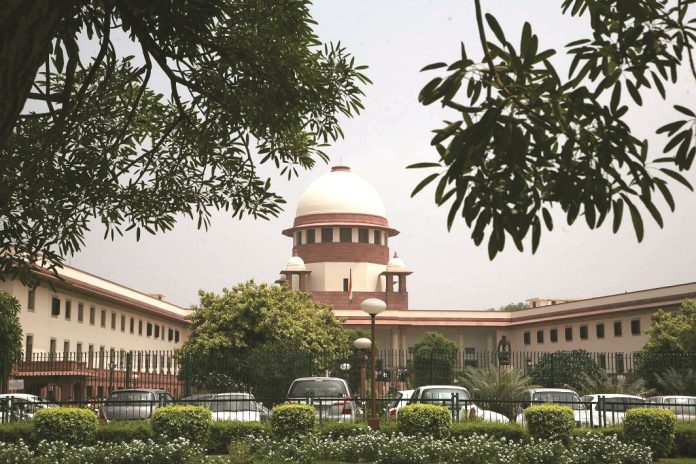The Supreme Court on Thursday refused to quash Section 33 (7) of the Representation of Peoples Act 1951 that permitted a candidate to contest from two seats in elections, stating that no judicial interference was required in a matter that fell in the domain of legislative policy.
The Bench of Chief Justice of India (CJI) D.Y. Chandrachud, Justice P.S. Narasimha and Justice J.B. Pardiwala dismissed the petition filed by Ashwini Upadhyay, observing that candidates may contest from different seats due to a variety of reasons. Whether this could lead to furthering of political democracy, was solely the Parliament’s discretion, it added.
The petition had challenged the constitutional validity of Section 33 (7) of the Representation of Peoples Act 1951 on the grounds that it was unreasonable and arbitrary.
Representing the petitioner, Senior Advocate Gopal Sankaranarayanan contended that the provision could put an extra burden on the public exchequer. If a candidate won from both seats, he would have to give up one seat, leading to a by-election on that particular seat, added the lawyer.
He further mentioned the recommendations made by the Law Commission of India for doing away with the provision.
The Apex Court then observed that it was the prerogative of the Parliament to act upon the recommendations of the Law Commission. A statutory provision cannot be struck down as unconstitutional on the basis of recommendation of the Law Commission, it added.
As per Sankaranarayanan, a candidate was allowed to contest from any number of seats earlier. The law was amended in 1966, restricting this number of two.
The Bench observed that the Parliament may at a later time think it fit to further restrict the number and it can always amend the Act.
The petitioner further sought directions to the candidates seeking election from two seats to deposit a higher sum of money, which was rejected by the Apex Court on grounds of it being a policy matter.
The CJI observed during the hearing that a leader wishing to establish himself pan India could be one of the reasons for him to contest from more than one seat. These were all political decisions and ultimately, the electorate had to take the call, he added.
Justice Narasimha seconded the CJI and said that there was no immorality in a candidate fighting polls from two seats. Rather, many historical figures had done this in the past, as they enjoyed such popularity.
(Case Title: Ashwini Kumar Upadhyay vs Union of India)


